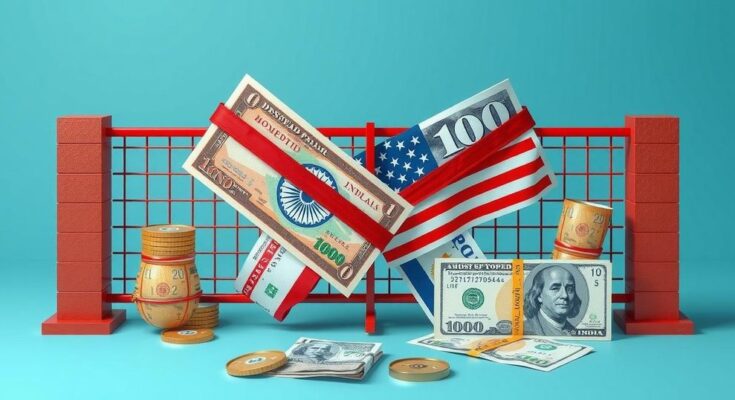Indian-American lawmakers criticize President Trump’s reciprocal tariffs, calling them reckless. They urge dialogue between India and the U.S. to address economic impacts. Key points include rising consumer costs, increased burdens on American families, and potential negative implications for international relations and the economy.
Indian-American lawmakers have voiced strong criticism against President Donald Trump’s reciprocal tariffs, labeling them as “reckless and self-destructive.” These tariffs, which include a 26 percent tax on Indian goods aimed at counteracting high tariffs on U.S. products, have raised concerns about competitiveness and economic repercussions. Lawmakers are urging constructive dialogue between India and the United States to mitigate potential fallout.
Congressman Raja Krishnamoorthi emphasized that these tariffs act as a tax burden on American families, effectively transferring wealth to the richest citizens. He asserted that these tariffs, referred to as ‘Liberation Day’ tariffs, impose unnecessary financial distress on small businesses and families in Illinois, risking a recession without enhancing national security or economic strength.
Similarly, Congressman Ro Khanna expressed alarm, remarking that the sudden implementation of the tariffs showcases a lack of strategic planning and consultation. He highlighted rising prices on essential goods, suggesting that the uncertainty surrounding tariffs exacerbates economic volatility and could lead to stagflation.
Congressman Dr. Ami Bera articulated concerns over the broader impact of these tariffs, stating, “these tariffs will not make America wealthy again” and indicating that American consumers will ultimately face increased costs, effectively serving as a tax increase, rather than a cut.
Ajay Bhutoria, advisor to President Biden, remarked on the sweeping tariff measures, predicting significant impacts on American consumers and calling attention to the financial strain experienced by key Indian industries. He warned that market uncertainty could lead to significant disruptions in global supply chains.
Wendy Cutler from the Asia Society Policy Institute cautioned that these reciprocal tariffs would shock trading partners and harm the U.S. economy through heightened prices and slowed investment. She expressed concern over the incongruencies in treatment among trading partners, advocating for careful consideration of the repercussions on foreign relations and economic growth.
In summary, Indian-American lawmakers have expressed substantial discontent with President Trump’s implementation of reciprocal tariffs. The general consensus is that these tariffs could undermine economic stability, increase consumer costs, and strain international relationships. Lawmakers are calling for dialogue and collaboration to address these tariff issues and safeguard economic interests in both nations, emphasizing the need for a strategic approach to trade policies that fosters rather than jeopardizes partnerships.
Original Source: www.ndtv.com




